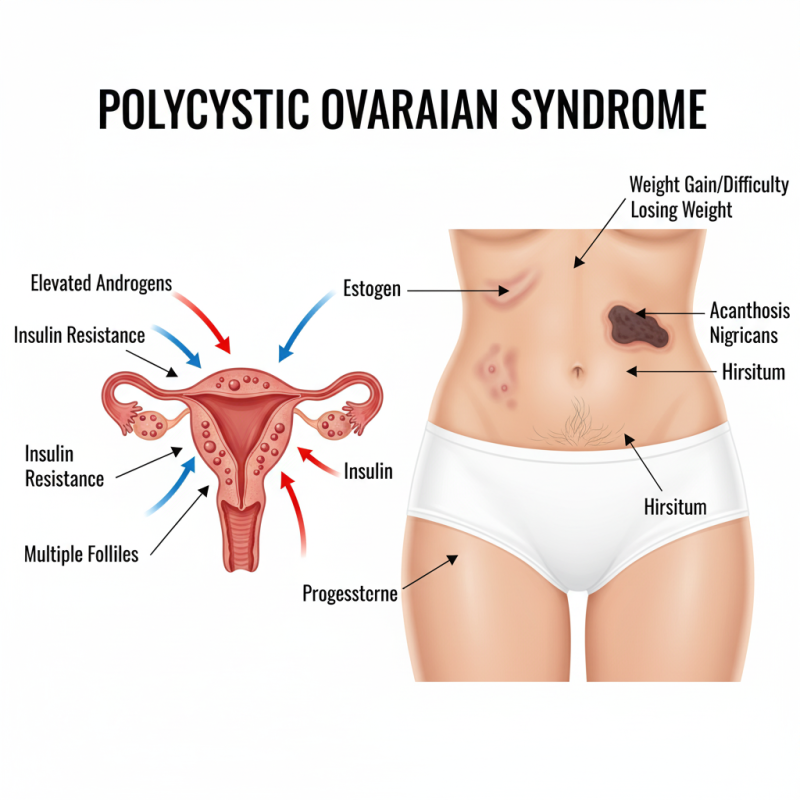No products in the cart.
HEALTH BLOGS BY FITBYNET
What is PCOD? Causes, Symptoms, and Diagnosis
Introduction
Polycystic Ovarian Disease (PCOD) is one of the most common hormonal disorders affecting women of reproductive age. It disrupts the normal functioning of the ovaries, leading to an imbalance in hormone levels, irregular periods, and various health complications. Despite its prevalence, there are several myths surrounding PCOD, which often create confusion and anxiety.
In this blog, we will delve into what PCOD is, its causes, symptoms, diagnosis, the role of stress, hormonal imbalances, and debunk some common myths associated with this condition.
What is PCOD?
PCOD (Polycystic Ovarian Disease) is a condition where the ovaries produce an excessive amount of immature or partially mature eggs. Over time, these eggs develop into cysts, leading to enlarged ovaries and hormonal imbalances. This affects a woman’s menstrual cycle, fertility, and overall health.
PCOD is often confused with PCOS (Polycystic Ovary Syndrome), but they are slightly different. PCOS is a more severe metabolic disorder that includes insulin resistance, whereas PCOD is primarily related to ovarian dysfunction and can often be managed with lifestyle changes.
Also Read:- Boost Testosterone Naturally: The Ultimate Guide to Enhancing Men’s Sexual Health
PCOD Causes: Why Does It Happen?
The exact cause of PCOD is still unknown, but several factors contribute to its development, including:
1. Hormonal Imbalance
PCOD is closely linked to hormonal fluctuations, especially an increase in androgens (male hormones) such as testosterone. Higher levels of androgens interfere with the ovulation process, leading to irregular periods and cyst formation.
2. Insulin Resistance
Insulin is a hormone responsible for regulating blood sugar levels. Many women with PCOD develop insulin resistance, causing the body to produce more insulin. High insulin levels can trigger excessive androgen production, further exacerbating PCOD symptoms.
3. Genetic Predisposition
A family history of PCOD increases the likelihood of developing the condition. If your mother or sister has PCOD, you may have a higher risk.
4. Unhealthy Lifestyle Choices
A sedentary lifestyle, poor diet, excessive junk food consumption, and lack of physical activity contribute to weight gain and insulin resistance, worsening PCOD symptoms.
5. Chronic Stress
Long-term stress can lead to increased cortisol levels, which, in turn, affect hormonal balance and ovulation.
Also Read:- 10 Superfoods to Lower Cholesterol and Boost Heart Health
PCOD Symptoms: How to Recognize It?
PCOD symptoms vary from person to person, but common signs include:
1. Irregular or Absent Periods
One of the most common symptoms of PCOD is an irregular menstrual cycle. Some women experience heavy bleeding, while others have scanty or missed periods.
2. Excessive Hair Growth (Hirsutism)
Due to elevated androgen levels, women with PCOD may develop unwanted hair on their face, chest, and back.
3. Acne and Oily Skin
Hormonal imbalances often cause severe acne, oily skin, and breakouts, particularly around the jawline and chin.
4. Weight Gain and Difficulty Losing Weight
Women with PCOD tend to gain weight, especially around the abdomen, due to insulin resistance.
5. Hair Thinning or Hair Loss
Increased androgen levels can cause thinning of scalp hair, leading to female pattern baldness.
6. Mood Swings and Anxiety
Hormonal imbalances can contribute to mood swings, depression, and anxiety, impacting mental well-being.
7. Infertility Issues
PCOD can cause ovulation irregularities, making it difficult to conceive naturally.
PCOD and Stress Management
Stress plays a significant role in worsening PCOD symptoms. Chronic stress disrupts the body’s hormonal equilibrium, leading to:
- Increased cortisol levels
- Higher androgen production
- Irregular ovulation
- Worsening insulin resistance
How to Manage Stress for PCOD?
- Yoga & Meditation: Practicing yoga asanas and deep breathing exercises can help regulate hormones and reduce stress levels.
- Regular Exercise: Engaging in physical activities like walking, jogging, or swimming helps in weight management and stress reduction.
- Adequate Sleep: Sleeping for at least 7-8 hours daily helps in maintaining hormonal balance.
- Mindfulness Techniques: Practicing mindfulness and gratitude journaling can improve emotional well-being.
- Balanced Diet: Eating nutrient-rich foods and avoiding processed foods helps in reducing inflammation and stress.
How is PCOD Diagnosed?
Early diagnosis and treatment are essential to manage PCOD effectively. Your doctor may recommend the following tests:
1. Medical History & Physical Examination
Your doctor will assess symptoms, family history, weight, and menstrual cycle irregularities.
2. Blood Tests
Hormonal tests measure levels of androgens, insulin, and other reproductive hormones to detect imbalances.
3. Ultrasound Scan (Pelvic Sonography)
A pelvic ultrasound helps in identifying the presence of cysts in the ovaries and assessing ovarian size.
4. Glucose Tolerance Test
Since insulin resistance is linked to PCOD, doctors may conduct glucose tests to evaluate sugar metabolism.
PCOD Myths and Facts
Many misconceptions about PCOD create unnecessary fear and confusion. Let’s debunk some common myths:
Myth 1: PCOD Always Leads to Infertility
Fact: While PCOD can cause ovulation problems, it does not mean you cannot conceive. With proper treatment and lifestyle changes, many women with PCOD successfully get pregnant.
Myth 2: PCOD Only Affects Overweight Women
Fact: While obesity increases the risk, even lean women can have PCOD.
Myth 3: Birth Control Pills Cure PCOD
Fact: Birth control pills help in regulating periods but do not cure PCOD.
Myth 4: PCOD is a Rare Condition
Fact: PCOD affects 1 in 10 women worldwide, making it one of the most common reproductive health issues.
Myth 5: PCOD Has No Cure
Fact: While PCOD is a lifelong condition, it can be managed effectively through diet, exercise, and medical guidance.
Conclusion
PCOD is a manageable condition with the right approach. Early diagnosis, lifestyle modifications, and stress management play a crucial role in controlling symptoms and preventing complications. If you suspect you have PCOD, consult a healthcare professional to develop a personalized treatment plan.
By understanding what PCOD is, its causes, symptoms, diagnosis, and myths, you can take proactive steps to improve your health and well-being.

